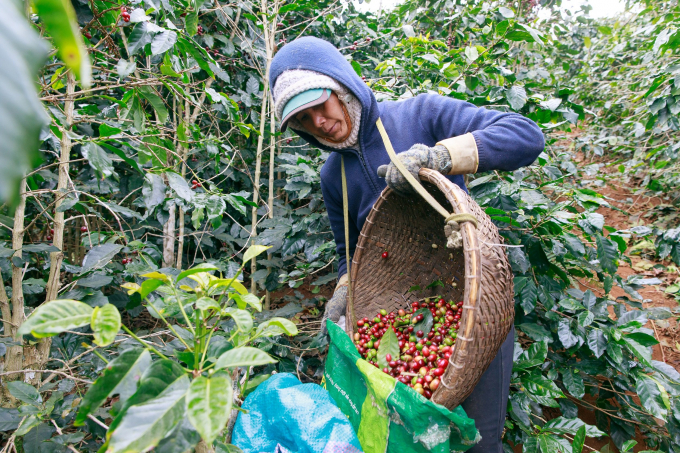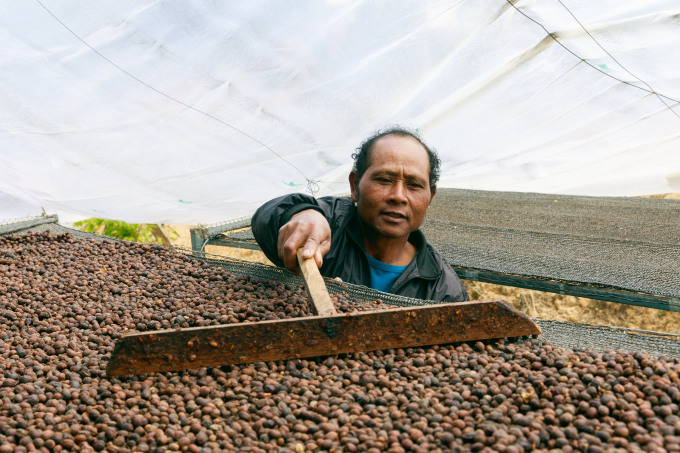May 24, 2025 | 16:24 GMT +7
May 24, 2025 | 16:24 GMT +7
Hotline: 0913.378.918
May 24, 2025 | 16:24 GMT +7
Hotline: 0913.378.918

The GCP Snapshot 2019 & 2020 provides a look into the sustainable coffee purchases of JDE Peet's, Melitta Group, Nestlé, Strauss Coffee, SUPRACAFÉ and Tesco.
On June 30th, 2021, in Bonn, Germany. six leading coffee companies have taken exemplary public action by sharing coffee sustainability progress in a new report published today by the Global Coffee Platform (GCP). The GCP Snapshot 2019 & 2020 provides a look into the sustainable coffee purchases of JDE Peet's, Melitta Group, Nestlé, Strauss Coffee, SUPRACAFÉ and Tesco.
The latest GCP Snapshot has been designed to show the sustainability strides being made by participating GCP Roaster & Retailer Members, while also providing previously unavailable data for the coffee sector to assess.
"The GCP Collective Reporting on Sustainable Coffee Purchases enables roasters and retailers to demonstrate leadership on progress towards transitioning the entire coffee market to sustainable sourcing from diverse origins," said GCP Executive Director, Annette Pensel.
This year's report is the result of GCP's expanding CoNective Reporting efforts, which has included new participating GCP Members, new reporting features, and an expansion of sustainability schemes eligible for reporting by using the GCP Baseline Coffee Code as a reference.
Highlights of the GCP Snapshot include data on the increasing share of sustainable coffee purchases as reported by GCP Members for 2019 (41% of total purchased green coffee - a relative increase of 15% compared to 2018) and 2020 (48% of total purchased green coffee). The report also presents the breakdown of purchases per participating coffee roaster and retailer, as well as a new feature on companies' sustainable coffee purchases according to sourcing regions. Moreover, it offers insights into origin diversity as well as the shares of sustainable coffee purchased according to different GCP-recognized sustainability schemes.

GCP promotes increasing demand and supply of sustainable coffee from diverse origins as one important way to scale positive impact for coffee farmers, workers and their environment.
Aligning efforts and using a common language allows the sector to better understand sustainability progress being made and gaps to be urgently worked on. GCP promotes increasing demand and supply of sustainable coffee from diverse origins as one important way to scale positive impact for coffee farmers, workers and their environment.
"The aligned reporting is a powerful example of how GCP Members are cooperating to meet the coffee sustainability challenges. In light of the urgent need to ramp up work towards the Sustainable Development Goals, we encourage roasters and retailers to increase their sustainable coffee purchasing and join this collective transparency effort to advance coffee sustainability," said Pensel.
All GCP queries can be directed to:
Ms Claire Mathieson, email: mathieson@globalcoffeeplatform.org

(VAN) In the tranquil wetlands of Van Long, there are quiet souls who guard the forests, nurture the waters, and oversee every bird and troop of langurs as protecting the essence of a living heritage.

(VAN) WWF, GIZ, IUCN, UNDP call for biodiversity conservation and sustainable development must be regarded as a unity in strategies for a green future.

(VAN) On celebration of International Day for Biological Diversity, Deputy Minister Nguyen Quoc Tri called for practical actions to address nature and biodiversity conservation.

(VAN) Dr. Hoang Thi Thanh Nhan – Deputy Director of the Nature and Biodiversity Conservation Agency – highlighted this on the International Day for Biological Diversity, May 22, 2025.
![Ho Chi Minh city adapts to climate change: [2] Accelerating action](https://t.ex-cdn.com/nongnghiepmoitruong.vn/608w/files/chiqk/2025/05/22/4024-4220-bien-doi-khi-hau-1-100626_766.jpg)
(VAN) Clearly recognizing the challenges posed by climate change, Ho Chi Minh city has swiftly shaped its policies and implemented practical solutions to adapt.

(VAN) Rice straw is no longer just a discarded byproduct, but it is becoming a green resource that helps farmers in the Mekong Delta reduce emissions and promote circular, sustainable agriculture.

(VAN) Other Effective Area-based Conservation Measures (OECMs) are solutions that contribute effectively to achieving the goals of the Kunming–Montreal Global Biodiversity Framework.